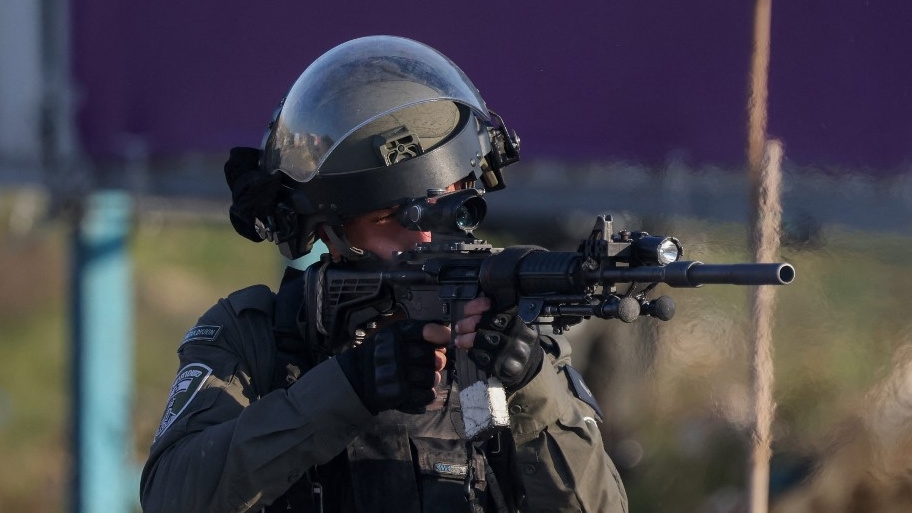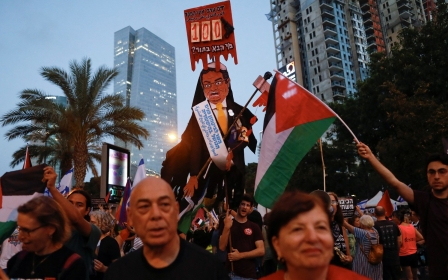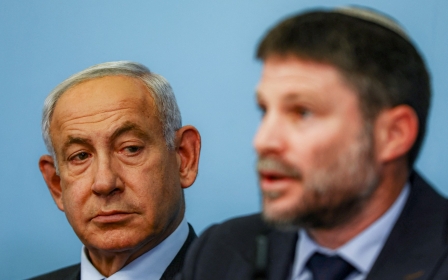Judicial crisis: Will Israel go to war to save its army?

While the United States might not seem concerned about an all-encompassing war in the Middle East, it remains fully committed to having a highly prepared military force in place: the Israeli army, an integral part of Washington’s major geopolitical interests in the region.
From a pragmatic perspective, “prepared” entails a clear, tangible and authentic ability to adeptly manage and control a conflict, and to achieve victory with minimal losses while safeguarding American interests, including the protection of US troops in the region when required.
But there are major reasons to doubt this preparedness currently exists. Israel is riven by internal divisions, characterised by deepening rifts and resulting in a nationwide refusal to comply with reserve service, and a weakening of the army and entire governing system, along with the potential risks of fascist domination.
In Israel, the current decline in the army’s preparedness signifies an inability to engage in military actions, and a lack of vision to plan wars strategically or even to launch limited-scale operations.
While this might not directly concern the army’s ability to confront an immediate conflict, it could nonetheless have a pivotal impact, breaking the spirit of the populace and of military personnel, potentially leading to grave consequences. Some within Israel are even viewing Israel's ongoing internal political crisis as more threatening than Iran.
The trying and chaotic times facing the Israeli military extend far beyond a mere tactical dilemma. The political crisis has given rise to a deep sense of social fragility and a fractured political relationship with the state.
This has driven the ruling system off-track, leaving it devoid of any semblance of mindfulness, and raising concerns about its ability to effectively govern state affairs - especially while it is acting immorally, without a popular consensus.
The fragmentation at the heart of the Israeli military is exacerbated by the inability of the defence minister to safeguard the army’s interests, leaving it exposed to prolonged political conflicts. Even worse, the army must now grapple with the difficult choice of prioritising loyalty to the principles of law over allegiance to the ruler. Ultimately, such a predicament leads to an ever-expanding state of disintegration.
Exponential challenges
Based on Israel’s on-the-ground realities, these conflicts present exponential challenges. Even if a genuine, collective agreement to resolve the conflict between the ruling far-right parties and the military and intelligence establishment was possible, at this point, neither political statements nor an internal consensus could effectively address the wide-ranging crisis.
Instead, what the country urgently needs, according to internal perceptions, is a limited military operation that would give the army an opportunity to regain a slight appearance of strength, even if it is eventually claimed as a victory by the opposing party.
Israeli society, much of which is in despair, is transitioning into a public spirit of anger, while some are considering emigration
For example, the Israeli administration led by then-Prime Minister Ehud Olmert during the 2006 Lebanon war believed that it had successfully restored its power over Israel’s northern border, while failing to acknowledge the subsequent establishment of mutual deterrence with Hezbollah.
The connection between the coalition government’s judicial overhaul - which aims to hinder any scrutiny of the deals that led to the creation of Israel’s most right-wing administration in history - and the government’s broader ambitions is worth examining, especially after the redistribution of ministerial powers.
Among these dramatic and notable developments was the appointment of Finance Minister Bezalel Smotrich, who has been designated to oversee the legitimation, establishment and expansion of illegal settlement outposts across the occupied Palestinian territories, with an aim to eventually reshape the legal status quo of the occupied West Bank.
In parallel, National Security Minister Itamar Ben Gvir has been afforded extensive powers to suppress Palestinians. He has directed a relentless campaign of racial attacks against the Palestinian population, while the government has forged ahead with policies to Judaise parts of the occupied West Bank, the Negev (Naqab) and the Galilee. This agenda lies at the core of Zionist religious rule in Israel.
Broader escalation
It should thus come as no surprise that the upcoming period will lead to a two-pronged form of Israeli aggression. Firstly, this aggression will unfold against the Palestinian population, including further land annexation plans, in pursuit of the ultimate goal of altering the demographic identity of the occupied lands.
Secondly, Israel will endeavour to restore its presence across its northern border, potentially leading to broader escalation across the region.
The ruling coalition seeks to consolidate and sustain its power by depriving Arab parties and communities of participation in the Knesset, with the sole purpose of leveraging the constitutional powers vested in the government, at the expense of Supreme Court oversight.
Israeli society, much of which is in despair, is transitioning into a public spirit of anger, while some are considering emigration and dissociating themselves from the Zionist state.
The question remains: Will the Biden administration in the US reassess its relations with the Netanyahu government and protect Palestinians and Arabs from the impending risks increasingly emerging from the outcome of Monday’s vote? It's an issue that may seem an internal Israeli one on the surface, but ultimately aims to exploit the Palestinian struggle for freedom.
The views expressed in this article belong to the author and do not necessarily reflect the editorial policy of Middle East Eye.
This article is available in French on Middle East Eye French edition.
Middle East Eye propose une couverture et une analyse indépendantes et incomparables du Moyen-Orient, de l’Afrique du Nord et d’autres régions du monde. Pour en savoir plus sur la reprise de ce contenu et les frais qui s’appliquent, veuillez remplir ce formulaire [en anglais]. Pour en savoir plus sur MEE, cliquez ici [en anglais].






